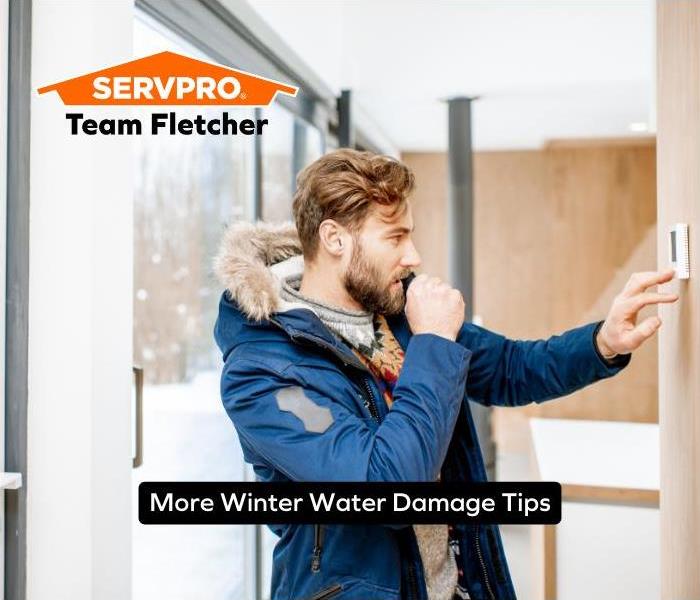More Winter Water Damage Tips
1/9/2024 (Permalink)
Although it hasn’t been too long since we shared some tips for staying dry in the winter, we thought we should let you know about some other things that homeowners should be aware of to keep your property safe from water damage this winter.
Don’t freeze the sump pump!
Something many people overlook is protecting their sump pump from the elements in the winter. Sump pumps can malfunction if exposed to the harsh cold of winter, so a winter storm could render your pump useless. What good is a sump pump if it can’t drain water when you need it to the most? You can wrap the discharge line with insulation tape or foam to keep it from freezing. Check the discharge pipe regularly to make sure it isn’t clogged by any residue or ice.
Utilize your thermostat
If you’re leaving for an extended period of time, don’t simply turn your furnace off and leave! You can put your thermostat at a very low temperature, but warm enough that pipes in your home won’t freeze. Good insulation is key, but keeping your thermostat at around 55 degrees Fahrenheit could make the difference between a dry home and an unfortunate pipe leak.
What about appliances?
Appliances that have a water line or hose should not be neglected in your winter water damage walk-through. Make sure these are connected securely and aren’t exposed to the elements of winter; a small leak can turn into a big problem over time.
Check your pipes
While taking action to keep your pipes well insulated from the weather, you should check the integrity of your pipes while you’re at it. Check the areas around your water pipes to make sure there are no signs of moisture, such as water stains and condensation. If you’re unsure about what you’re looking at, ask a professional to check your plumbing for you. The earlier you can detect a faulty pipe and fix it, the less water damage you have to deal with in the future.
Even if you follow all our tips to a T, disastrous weather can bring water damage to even the most prepared homeowners. If you find yourself in this situation or have any questions about winter water damage prevention, please give us a call at (309) 346-5600.





 24/7 Emergency Service
24/7 Emergency Service